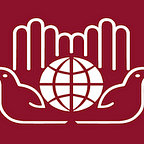Opinion: Non-European refugees in Eastern Europe facing discrimination and racism is reprehensible, but unsurprising
By: Gracey Zostant, FCRH Class of 2022
The global discourse on refugees has been revitalized following Putin’s aggression towards Ukraine. Since February 24, over two thousand Ukrainians have lost their lives and more than 3.8 million are fleeing the state, most to neighboring Poland. The United Nations and other international organizations who have expedited the allocation of aid to Ukrainian refugees have faced criticism for the disproportionate response the situation has received compared to crises with non-European refugees. In contrast to those in Ethiopia, Palestine, and many other regions, responses to the conflict in Ukraine may be a result of the international community’s alarm over Russia’s possession of weapons of mass destruction. However, global concern over nuclear weapons should not correlate with the acceptance, or unacceptance, of some refugees over others.
In sharing the agonies of his own journey to asylum, one Syrian refugee named Ibrahim, expressed sadness over the differences in treatment of Syrian and other non-European refugees at Poland’s border as opposed to Ukrainians. Ibrahim’s story highlights how Belarus welcomed refugees only to use them as pawns, forcing them towards Poland in an attempt to aggravate its borders. In response, it has been illegal to help war refugees at the border over the past year; though now the rules have changed, and Ukrainian refugees seeking asylum are being met with open arms.
“Those who flee Putin’s bombs in Ukraine…flee to safe countries with governments that receive them as heroes. In Syria, we had to flee the bombs to humiliation.” Ibrahim suffered abuses not only from both Belarusian and Polish forces, but the harsh elements of the forest along their border. Many refugees at the fringe of Belarus remain in limbo to this day, living in poor conditions, freezing cold and rejected by both states. Although refugees like Ibrahim sympathize with Ukrainian refugees, the paradoxical reception of Ukrainians highlights a problematic preferential pattern by the European Union, leaving other refugee populations feeling disregarded and excluded.
Disturbing reports of racial and ethnic based discrimination at border checkpoints have also been circulating social media, though these narratives are rarely covered by larger media outlets. Assistant professor of African and Cold War History at Fordham University, Nana Osei-Opare, and Soviet Union historian Thom Lloyd expanded on the implications of historical Anti-Black racism in former soviet states on Africans trying to flee Ukraine.
“Alongside Russian President Vladimir Putin’s disastrous decision to invade Ukraine, European border policies essentially barring most Africans also demand strict scrutiny.” Unfortunately, when concerns are voiced about the racism occuring, it is often seen as a deflection from the urgent scenario unfolding in Ukraine. However, as Osei-Opare and Lloyd assert, Africans have become a part of the fabric of Ukrainian society and must not be an afterthought in this crisis.
The current Chairs of the African Union, H.E. Macky Sall and H.E. Moussa Faki Mahamat addressed the situation as a breach of international law, to deny people the right to cross borders based on racial identity. Demanding attention for the unjust ignorance of international law does nothing to weaken the front of Ukrainian resistance or unity. Osei-Opare and Lloyd explain that as a result of different experiences of imperialism, Ukrainians have historically seen Africans as a “tool of their own colonial subjugation” by Russia as it has used Africans in Ukraine as a means for political ends in the past.
However, it is not enough to reference the historic racism in former USSR states as an explanation for unequal treatment at the borders of the EU, as it can quickly devolve into justification for the failure to fulfill human rights equally. Osei-Opare and Lloyd do not suggest that this history is grounds for the manifestation of racism in the refugee crisis today. They are careful to denounce ethnically motivated insular political and social actions which disregard the exigent needs of Africans in Ukraine.
Of the media coverage that does mention this disaster, solutions are rarely offered. So who is to blame, and how can we fix it? A diffusion of responsibility can be particularly harmful where larger patterns of societal discrimination are concerned; Though it seems that few states are willing to step up and even acknowledge the problem, lest they provide resources to refugees that do not look traditionally European.
If we merely gloss over these narratives, without searching with dedicated intent for both immediate solutions and sustainable ones, our humanitarian efforts and global institutions will fall victim to moral disengagement and continue to fail those less visible on the global stage. If the EU commits to taking in refugees, then all refugees must be given the same dignity, or its promises become empty for so many.
